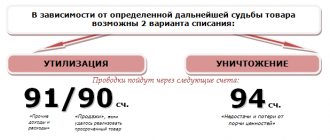What awaits the convicted person?
Having chosen a conditional correctional measure, a probationary period is assigned to the individual along with it.
A suspended sentence with a probationary period, what is it, what actions will the guilty person have to perform:
- visit an authorized institution in order to mark your presence in a certain territory. Where to register is usually determined by a court decision. In any case, upon appointment of a conviction, after about 2 weeks, the convict is notified by the inspector assigned to him about the time and place of the meeting, explains preferences and obligations, explains which department of the correctional inspection to come to and with what frequency;
- comply with assigned additional restrictions;
- try to prove your correction - get a job, get reinstated in your studies, and not commit offenses.
The probationary period varies and may be different depending on the expected actual sentence for the criminal act committed:
- From six months to 3 years (if this article provides for imprisonment for a period of up to 12 months or a milder punishment).
- Up to 5 years (if arrested for more than a year).
- For the entire time remaining until the end of military service (in the form of detention in a disciplinary unit).
The duration is fixed in court, taking into account all mitigating factors, the identity of the perpetrator, and the degree of damage caused. Time is calculated from the period when the court verdict comes into force. However, the period of time from the announcement of the imposed measure to the entry into force is counted towards the term of serving the sentence.
ATTENTION !!! Replacing an actual sentence with a suspended sentence does not prevent the imposition of additional sanctions. They are determined separately. However, their observance is precisely the result of correction.
An additional measure may include:
- prohibition of changing permanent place of residence, work, study;
- restrictions on visiting certain establishments (that can have a bad influence - nightclub, bar);
- obligation to undergo a treatment course (for those suffering from alcohol and drug addiction);
- responsibilities for employment and reinstatement in an educational institution.
The above list is not exhaustive and may be supplemented upon consideration by the court. Also, while being tested, it is allowed to add new measures and change the validity period. Again, what restrictions to apply will be decided by the judge at the request of the inspector (with good behavior, the regime as a whole may be relaxed).
Many individuals are interested in whether it is possible to travel abroad while on probation. As a rule, these are mutually exclusive actions, since the most common additional measure is a restriction on the permitted territory for movement (within a region - region, district).
Counting the probationary period into a real punishment
A probationary period in itself is not a punishment, therefore it does not count towards the actual period of imprisonment, as happens in the case of the use of preventive measures in the form of detention or house arrest.
If you need a qualified criminal lawyer, call: +7(926)254-36-86.
You can see examples of successfully completed criminal cases at this link
Legislation in the Russian Federation is changing rapidly, so the information in this article may have lost its relevance. To get an answer to your question, use an online consultant or call a lawyer at: +7(926)254-36-86.
Carrying punishment
The punishment is served at the place of permanent residence of the convicted person. The latter undertakes to register with the local branch of the executive inspection and visit an authorized person to register with a regularity established in advance (from 1 to 4 times a month).
ATTENTION !!! The generally accepted procedure for serving a sentence is fixed in Art. 118 of the Penal Code of the Russian Federation, also determined by a court decision. Institutions keep records of the culprits, monitor behavior and monitor the implementation of additional enforcement measures (for example, there is a ban on leaving the home from 22:00 to 6:00. During this time, the inspector has the right to visit the individual’s home in order to check his presence at home. Moreover, these actions are carried out without advance warning from the employee).
If a person avoids meeting with an employee, visits the institution irregularly or not at all, or does not comply with prescribed restrictions, then, upon the proposal of the inspector, new legal proceedings are initiated. Upon its completion, a decision is made to tighten enforcement measures, namely, the application of a real deadline.
Procedure for serving the probationary period
An inspector is assigned to the conditionally convicted person and calls him for an interview. It is necessary to appear at the inspection when called with an identification document. Other documents that the conditionally convicted person should have with him must be indicated in the notice of appearance sent to the convicted person.
At the first meeting with the convicted person, the inspector:
- checks the necessary documents;
- provides the fingerprinting procedure (dactyloscopy);
- forms the personal file of the convicted person;
- explains the rights and obligations of the convicted person, determines the schedule for his appearance at the inspection, if such an obligation is assigned to the convicted person by the court.
At the end of the conversation, the inspector takes the conditionally convicted person’s subscription to explain his rights and obligations, and also gives him a memo. If the court has ordered the convicted person to undergo treatment, he is given a referral to an established medical institution.
During the probationary period, the inspector regularly checks the performance of the probationer's duties. Checks can be carried out at the place of residence, place of work or study, or in various public places. Once every three months they can be carried out jointly with police officers.
Our lawyers know the answer to your question
Free legal advice by phone: in Moscow and the Moscow region, in St. Petersburg, as well as throughout Russia
This type of liability may be assigned subject to certain conditions:
- The liquidation of freedom for more than 8 years is not considered to be actual repression. The article requires corrective labor, restrictions on military service, and stay in a disciplinary unit.
- The culprit is not subject to prohibitions that do not allow choosing a conditional sentence (committing a crime against the sexual integrity of a minor, terrorism (Article 205.1, 205.2, 205.4), hostage taking (Parts 1-3 of Article 206), attack on an organization or person under the auspices of international protection (Article 360); commission of a criminal act of a grave or especially grave nature during the probation period for a previous offense; recidivism posing a particular danger to society).
- The degree of danger to society, the personality of the defendant, mitigating and aggravating circumstances make it possible to assign a condition (the factor of the primacy of the commission of the crime, repentance and admission of guilt, characteristics of the person from the place of employment or educational institution, the presence of a family and dependents, raising young children, being pregnant) are taken into account.
IMPORTANT !!! As judicial practice shows, judges willingly choose the commented type of suppression in the presence of mitigating circumstances and a positive characteristic of the culprit. However, if there is at least one aggravating factor, the court may reject any attempts to impose a more humane measure of correction.
Conditions and procedure for removing a suspended conviction
Now let's talk about why they give a suspended sentence.
During a criminal trial, the court pays attention to whether the accused cooperated with the investigation and whether he was ever convicted before this trial. Various mitigating and aggravating circumstances, the personality of the accused and his marital status are also taken into account.
If all these factors satisfy the judge, he may impose a suspended sentence. In addition to various requirements, the court also assigns a probationary period, during which the accused will be monitored especially closely . Typically, the amount of such a period varies depending on the crime, but its minimum is 6 months.
If the term of imprisonment did not exceed 1 year, then probation will last no more than 3 years. If it is more than 1 year, then the court can appoint a probationary period of up to 5 years.
The court's further decision regarding the fate of the accused will depend on his behavior during the probationary period.
Is it possible to completely expunge a criminal record?
Of course, the most desirable outcome for a convicted person is the removal of his criminal record.
Our court fully accepts such a development of events during a suspended sentence, but it can make a decision only after half of the sentence has been served, not earlier. If the offender fully justified the trust given to him, and his behavior was impeccable, the court will remove his criminal record.
True, this is not the only possible ending. If the accused did not fully fulfill his obligations, the court may extend his probation, or may even resort to the execution of the original punishment, that is, imprisonment.
If the accused commits another crime, a new punishment will be added to his old term . And it is very doubtful that the offender will be able to count on another suspended sentence.
Cancellation of probation
A suspended sentence may be revoked in two situations:
- Upon correction of the face.
- To replace it with a more severe punishment.
In both the first and second cases, the initiator of the start of the process is an employee of the executive inspection.
Thus, early revocation of punishment is provided as an incentive measure for:
- completing more than half of the trial period;
- the convict managed to convince the employees of his correction, he made amends for the damage caused, at least partially.
At the same time, the issue of expunging a criminal record is resolved.
In the second case, not everything is so positive.
Changing the sanction to a more stringent type of sanctions, namely the actual period, is assumed if:
- Systematic evasion of compensation for harm caused.
- Regular violation of the regulations and restrictions established for him.
- Constant violation of public order and administrative liability during the probationary period.
- Avoiding meetings with an employee, escaping from the designated area.
- The individual committed a deliberate crime with grave consequences for the victim.
Is a suspended sentence a criminal record?
Article 73 of the Criminal Code of the Russian Federation suggests that one of the punishments for people who have committed a crime may be a suspended sentence, or rather the replacement of serving the assigned term in correctional institutions with further stay in society, albeit with many restrictions.
The court suggests this type of punishment for some criminals if the judge decides that this type of punishment will be more effective in terms of correcting the citizen.
In the end, we all understand that prisons in our country do not always contribute to correction, often even the opposite. Prison conditions are far from such a thing as comfort, and a long stay in such places has a detrimental effect on the psyche of many prisoners. It is worth recognizing that not every crime deserves such punishment.
By the way, the appointment of a suspended sentence instead of imprisonment does not exempt the offender from fulfilling other orders assigned by the court. For example, if the court orders the defendant to pay damages and imposes a condition, the defendant will still have to pay his fine.
About the features of a suspended sentence under Article 73 of the Criminal Code of the Russian Federation, as well as whether it can be replaced with another type of punishment, read the article at the link.
Consequences of conviction
No matter how mild and humane the way to correct a person who has broken the law is a suspended sentence, it is still a criminal record. The consequences of being held accountable will haunt the individual for life.
So, what does the future threaten:
- according to the provisions of Article 32 of the Constitution of the Russian Federation, suspended sentenced persons do not have the right to nominate themselves for a position in the legislative body of the state at any level;
- according to the requirements of the Federal Law “On the procedure for leaving the Russian Federation”, an individual who is on probation, until the expiration of its term and the removal of a criminal record in all systems, has no right to leave the territory of the country;
- seeming formal difficulties in applying and finding employment. Thus, a previously convicted subject will never be able to serve in law enforcement agencies or the judicial system. There are also a number of restrictions for civil servants. They will be denied jobs that require an unquestioning reputation that sets an example - teachers, educators, additional education workers. Also, many large companies refuse to employ such persons (formally another reason for refusal is stated, but in reality it is a fact of criminal behavior).
IMPORTANT !!! Thus, those who consider the presence of a suspended sentence to be no limiting factor for themselves are greatly mistaken. What is in fact: the measure of influence is really milder than staying in a colony; the individual remains free. The way of everyday life is practically not transformed, with the exception of the appearance of an obligation to mark and the operation of an additional measure.
However, a conviction is still a criminal record. Subsequently, this fact will certainly affect a person’s life. First of all, as with any other measures of influence, the individual’s reputation suffers. The person will be punished, the criminal record will be expunged, but the gap in reputation will not be filled. Therefore, the position that the way of life has not changed in any way and that a correction has taken place and that the presence of condemnation will not be reflected in the future is erroneous and unconscious.
The offender did not complete what he started - a court fine is possible
A person may be released from criminal liability with a court fine even in the case where, as a result of the commission of a crime, material damage was not actually caused due to the fact that the crime was not completed due to circumstances beyond the control of this person.
EXAMPLE No. 3.
By a decision of the district court, the criminal case was terminated with the imposition of a court fine against M., who was accused of committing a crime under Part 3 of Article 30, paragraph “a” of Part 2 of Art. 158 of the Criminal Code of the Russian Federation, namely the attempted theft of a reverse gearbox and diesel fuel, which was not completed, since these actions were discovered on the spot by employees of the organization and stopped.
Important!
When deciding to terminate a criminal case on the grounds provided for in Art. 762 of the Criminal Code of the Russian Federation, the court noted that the property was returned to the organization, in addition, M. himself repaired the faulty reverse gearbox, thereby making amends for the harm he caused to public relations.
Control
Control over the life of a person who has been given a suspended sentence is carried out by a special government body. As for military personnel, control is carried out by the command of military units.
If the offender, during the probationary period, evaded the fulfillment of the duties assigned to him, and also violated the current legislation, the court is authorized to cancel the suspended sentence and replace it with a real one.
A suspended sentence can be revoked before the end of the probationary period, including when not even half of it has passed. But the criminal must prove that he has reformed and also compensate for the harm caused. In this case, the judge may remove the criminal record.
Amount of court fine: less is possible, more is not possible
In accordance with Art. 1045 of the Criminal Code of the Russian Federation, the amount of a judicial fine cannot exceed half the maximum amount of the fine provided for in the corresponding article of the Special Part of the Criminal Code of the Russian Federation.
Important!
If the fine is not provided for by the relevant article of the Special Part of the Criminal Code of the Russian Federation, the amount of the court fine cannot be more than two hundred and fifty thousand rubles. Thus, the law determines only the maximum amount of a court fine. The minimum amount of a judicial fine imposed in accordance with Art. 762 of the Criminal Code of the Russian Federation, art. 1045 of the Criminal Code of the Russian Federation has not been established.
EXAMPLE No. 6.
By a decision of the district court, the criminal case against I., accused of committing a crime under Part 1 of Article 2221 of the Criminal Code of the Russian Federation, was terminated in accordance with Art. 251 of the Code of Criminal Procedure of the Russian Federation, he was assigned a criminal law measure in the form of a court fine in the amount of 3 thousand rubles. When determining the amount of the court fine, the court proceeded from the requirements of Art. 1045 of the Criminal Code of the Russian Federation, while taking into account the gravity of the crime of which I. is accused, his property status and the property status of his family, the working age of the defendant and his ability to earn income.
Reasons why a suspended sentence is not given
A suspended sentence is as follows: the administrative body makes a verdict, but does not prescribe serving it in prison, but only a conditional form of it.
The administrative body does not carry out the punishment only if it is subject to the fulfillment of specific conditions specified in the judicial decision. The possibility of receiving a suspended sentence is applicable only under the conditions established by law and with certain types of punishment:
• Corrective actions. • Arrival under different conditions.
A suspended sentence is not assigned under the following conditions:
• Committing a serious/especially serious crime. • Committing an action that threatens the lives of other people. • For crimes against sexual integrity.






